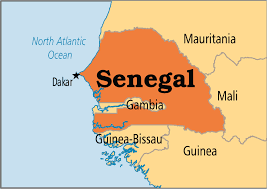APA-Dakar (Senegal) The consolidation of public finance, starting this year and in the medium term should help contain soaring prices in Senegal, according to the International Monetary Fund (IMF).
In 2022, Senegal saw inflation average 9.7 percent, “the highest rate in several decades,” said Edward Gemayel, head of an IMF mission on Tuesday at the end of a visit to Dakar.
“For 2023, economic activity should accelerate compared to last year, although at a slower pace than initially projected, while inflation should decline to about 5 percent thanks to the consolidation of public finance,” Gemayel told a press conference.
Optimistically, the IMF official said that thanks to the measures that will be taken this year and in the near future, “inflation should converge to 2 percent or even 3 percent in the medium term.”
In the same vein, the IMF mission chief in Senegal said that the medium-term outlook remains favorable and should benefit from both the start of oil and gas production and the implementation of structural reforms to overcome the main obstacles to private sector development under Phase 3 of the Emerging Senegal Plan (PSE).
“If oil production starts at the end of the year as planned, GDP growth is projected at about 8 percent, however, if it is postponed to next year, growth is expected to be 5 percent or 5.3 percent,” he explained.
Looking back to the performance of the Senegalese economy in 2022, he noted that it has experienced a more marked slowdown than expected in its Gross Domestic Product (GDP) and its growth. The latter was established, according to him, at 4 percent against 4.8 percent initially expected due to a decline in agricultural and industrial
production.
As for the public debt, it is estimated “at 75 percent of GDP of which 67.5 percent for the central government,” he said, adding that it “is still bearable, but the room for maneuver (of the state) has been exhausted because of the deficits recorded in the last three years.”
“For the debt, it is not the amount that is important, but the ability of the country to repay it. “Senegal has no problem paying the debt service,” he pointed out, noting that in the event of a new crisis, Dakar “would no longer have the margin to go into debt or to have a high deficit.”
Several countries of the West African Economic and Monetary Union are finding it increasingly difficult to raise funds on the financial markets. For Mr. Gemayel, “the first signs of a tightening of financing conditions in the regional public securities market call for vigilance and the development of a contingency plan.”
In this context, he stressed that “improving tax revenue mobilization and rationalising non-priority public expenditures will help alleviate fiscal pressures while preserving debt sustainability.”
Edward Gemayel was in Dakar for negotiations on a new economic and financial program for Senegal. He said that no formal discussions have begun and that negotiations will start on the sidelines of the IMF’s spring meeting.
The IMF and the government have, however, exchanged ideas on a three-year program that would focus on three key areas: strengthening the resilience of public finances, improving governance through transparency, and supporting socioeconomic resilience through strengthening the social safety net.
Senegal is also in talks to benefit from the Climate Change Resilience and Sustainability Facility, a new IMF program launched in 2021.
ARD/ac/fss/as/APA


